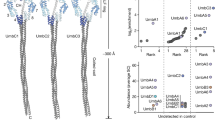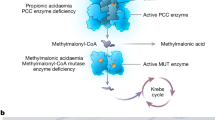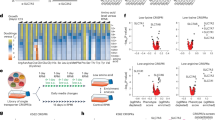Abstract
The effects of cholera toxin (CT) and 8-chloro-cAMP (8-Cl-cAMP) on cell growth were investigated using two human pancreatic carcinoma cell lines (MIA PaCa-2, Panc-1). CT, which catalyses the ADP ribosylation of Gs, suppresses the proliferation of MIA PaCa-2(PC) cells. CT at the low dose of 0.1 pg ml-1 was inhibitory of PC cell growth, and the maximum suppression (70%) was achieved at a CT concentration of 100 pg ml-1. This phenomenon was reversible. The production of cAMP by CT (100 pg ml-1) in PC cells was enhanced 320-fold compared with the control. In addition, cAMP analogues (8-Cl-cAMP, 8-Br-cAMP) and forskolin decreased the growth rate of PC cells in a dose-dependent manner. These results support the view that CT suppresses PC cell growth by stimulating cAMP production. Conversely, Panc-1 cells were far less sensitive to CT in cell growth and cAMP production. 8-Cl-cAMP was also less effective on Panc-1 cell growth. The binding of an insulin-like growth factor (IGF)-I and transforming growth factor (TGF)-alpha, which has been shown to stimulate PC cell growth in an autocrine manner, to PC cells was not modified in cells treated with CT or 8-Cl-cAMP. The results suggest that the inhibitory actions of these substances do not occur at the level of the receptor for IGF-I or EGF/TGF-alpha. We have previously shown that phorbol esters, which decrease the binding of TGF-alpha to PC cells, has an anti-proliferative activity on these tumour cells. Inhibited cell growth by maximum suppressive dose of CT or 8-Cl-cAMP was further inhibited by TPA. In addition, an oncogene product of K-ras which is commonly activated in pancreatic cancer, was increased by CT and 8-Cl-cAMP. It is concluded that CT and 8-Cl-cAMP inhibit PC cell growth, presumably in a similar manner, and their mechanism(s) of action may be different from that of TPA. The anti-proliferative effect of CT or 8-Cl-cAMP was enhanced by TPA, implying that the combination of these substances results in increased inhibition of the PC cell growth.
This is a preview of subscription content, access via your institution
Access options
Subscribe to this journal
Receive 24 print issues and online access
$259.00 per year
only $10.79 per issue
Buy this article
- Purchase on Springer Link
- Instant access to full article PDF
Prices may be subject to local taxes which are calculated during checkout
Similar content being viewed by others
Author information
Authors and Affiliations
Rights and permissions
About this article
Cite this article
Ohmura, E., Wakai, K., Isozaki, O. et al. Inhibition of human pancreatic cancer cell (MIA PaCa-2) growth by cholera toxin and 8-chloro-cAMP in vitro. Br J Cancer 67, 279–283 (1993). https://doi.org/10.1038/bjc.1993.53
Issue Date:
DOI: https://doi.org/10.1038/bjc.1993.53
This article is cited by
-
Association of post-diagnostic use of cholera vaccine with survival outcome in breast cancer patients
British Journal of Cancer (2021)
-
Reciprocal effects of Th1 and Treg cell inducing pathogen-associated immunomodulatory molecules on anti-tumor immunity
Cancer Immunology, Immunotherapy (2007)



